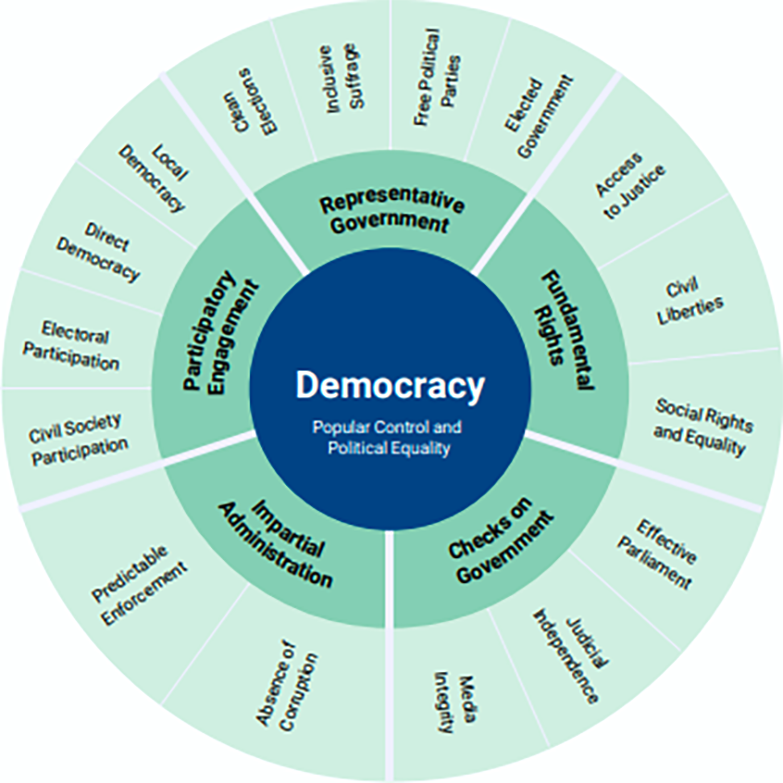Global State of Democracy Report 2021 | 24 Nov 2021
Why in News
According to the recently released Global State of Democracy Report, 2021, the number of countries moving towards authoritarianism in 2020 was higher than that of countries becoming more democratic.
Key Points
- About:
- The report aims to influence the global debate and analyses current trends and challenges to democracy, exacerbated by the Covid-19 pandemic.
- It offers specific policy recommendations to spark new and innovative thinking for policymakers, governments and civil society organizations supporting democracy.
- It is released by the International Institute for Democracy and Electoral Assistance (International-IDEA).
- About International Institute for Democracy and Electoral Assistance:
- International IDEA is an intergovernmental organization that supports sustainable democracy worldwide.
- It was founded in 1995 and currently has 33 member states.
- International IDEA advances democracy worldwide, as a universal human aspiration and an enabler of sustainable development, through support to the building, strengthening and safeguarding of democratic political institutions and processes at all levels.
- Highlights of the Report:
- Democratic Decline: Democratically elected Governments, including established democracies, are increasingly adopting authoritarian tactics.
- Effect of Pandemic: The pandemic placed considerable stress on democracy across the region by imposing inevitable restrictions on movement and—where governments were sensitive to criticism —also restrictions on freedom of expression.
- The year 2020 was the worst on record, in terms of the number of countries affected by deepening autocratisation.
- The pandemic has thus had a particularly damaging effect on non-democratic countries, further closing their already reduced civic space.
- Popular Support: This democratic backsliding has often enjoyed significant popular support.
- Indian Scenario: The report highlighted the case of Brazil and India as “some of the most worrying examples of backsliding.
- However, India remained in the category of a mid-level performing democracy as it has since 2000.
- Major Suggestions:
- New Social Contract: There is a need to deliver on political or civic reforms or develop a new social contract that closes the gap between what people want and what governments currently deliver.
- This can be done by designing responsive, inclusive, accountable, and transparent institutions oriented towards achieving sustainable development.
- Strengthening Institutions: Rebuilding existing institutions by updating practices in established democracies, building democratic capacity in new democracies, and protecting electoral integrity, fundamental freedoms and rights, and the checks and balances essential to thriving democratic systems.
- Strengthening Civil Society: Preventing the rising authoritarianism and democratic backsliding can be done by investing in education and by supporting independent civil society, combatting disinformation and supporting free and independent media that facilitates the growth of democratic cultures, values and practice.
- New Social Contract: There is a need to deliver on political or civic reforms or develop a new social contract that closes the gap between what people want and what governments currently deliver.
Source: TH

